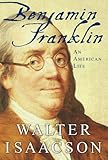Here are four big ideas from his book that go to the heart of the biblical and Reformation understanding of faith and work. If you reflect on these ideas, you begin to see how truly transformative they are.
- One of the chief insights of the Reformation is that we can (and must) find God in everyday life, not just in spiritual contemplation and devotion.
- We can find God in everyday life because he created it and is Lord of all life.
- This means that daily work is not a hinderance to the Christian life, but a necessary ingredient of it. We can find God in our work and work with him in it, as co-workers.
- God will judge your work.
We Don’t Have a Right to Be Idle
No man has a right to be idle . . . where is it in such a world as this that health, and leisure, and affluence may not find some ignorance to instruct, some wrong to redress, some want to supply, some misery to alleviate? – William Wilberforce
It makes no sense for us to live in a society of abundance while half the world lives in great need, and not be diligent and creative and eager to figure out ways to use our abundance to help meet those needs.
When we look around and see our comfort, privilege, and affluence, we shouldn’t fall into the trap of asking “how can I get more of this?” As Kingdom-minded Christians, our first thought should be: “how can I use this technology/money/time to serve—especially those in greatest need?”
That’s the gospel-driven productivity William Wilberforce gave his life to.
Recommended June Reading
Every year about this time I try to read a biography of one of the founding fathers. This year I think it will be Walter Isaacson’s Benjamin Franklin: An American Life.
A few others that I’d recommend considering are:
- John Adams by David McCullough
- 1776 by David McCullough
- And–although not a founder–Dinesh D’Souza’s very good book Ronald Reagan: How an Ordinary Man Became an Extraordinary Leader
